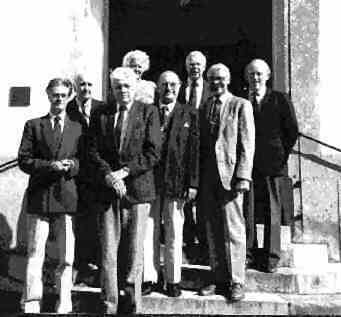Motive, Goal, Purpose
Archives are one of the most important sources of information in all historical research. When we set about to creating an historical archive for the industry, for some time called Datasaab, we aimed to
Create and organise an archive of such quality and with such keeping making it useful and accessible for future research.
The exceptionally fast computer development from the end of World War 2 and onward makes the Datasaab archive especially important. Datasaab was from the beginning a very technically oriented organisation, as was its parent company Saab. Its development of hardware and software was from time to time in the front line internationally and, accordingly, the archive has its emphasis on the more technical aspects, especially for the early periods of 1950’s and 60’s.
However we hope that the archive will help to illustrate how the rapid technical development affected the company’s ownership, organization, employee structure, markets, and general direction. It is also important to note how Datasaab has served as a school for many young talents who have later gone off to other companies and institutions. Datasaab also played a role in the establishment of the University of Linköping and helped to create the strong emphasis on information technology.
Basically the archive is limited to the activities in Linköping and to those subsidiaries in a number of countries which were directly associated with Datasaab in Linköping. A limited number of documents from Datasaab’s customers are also filed. From time to time Datasaab had activities in other cities, but for practical reasons we have refrained from covering these activities systematically. The archive covers the time from late 1940´s to late 1980´s. In spite of the limitations we consider the archive to be of great general interest in describing the Swedish electronic industry after World War 2.

The original archive group from 1991
From left: Bengt Jiewertz, Sune Sjölund, Hans Ericsson, Ulla-Greta Malmqvist, Åke Berthner, Kenneth Nilsson, Viggo Wentzel, Olof Perers.